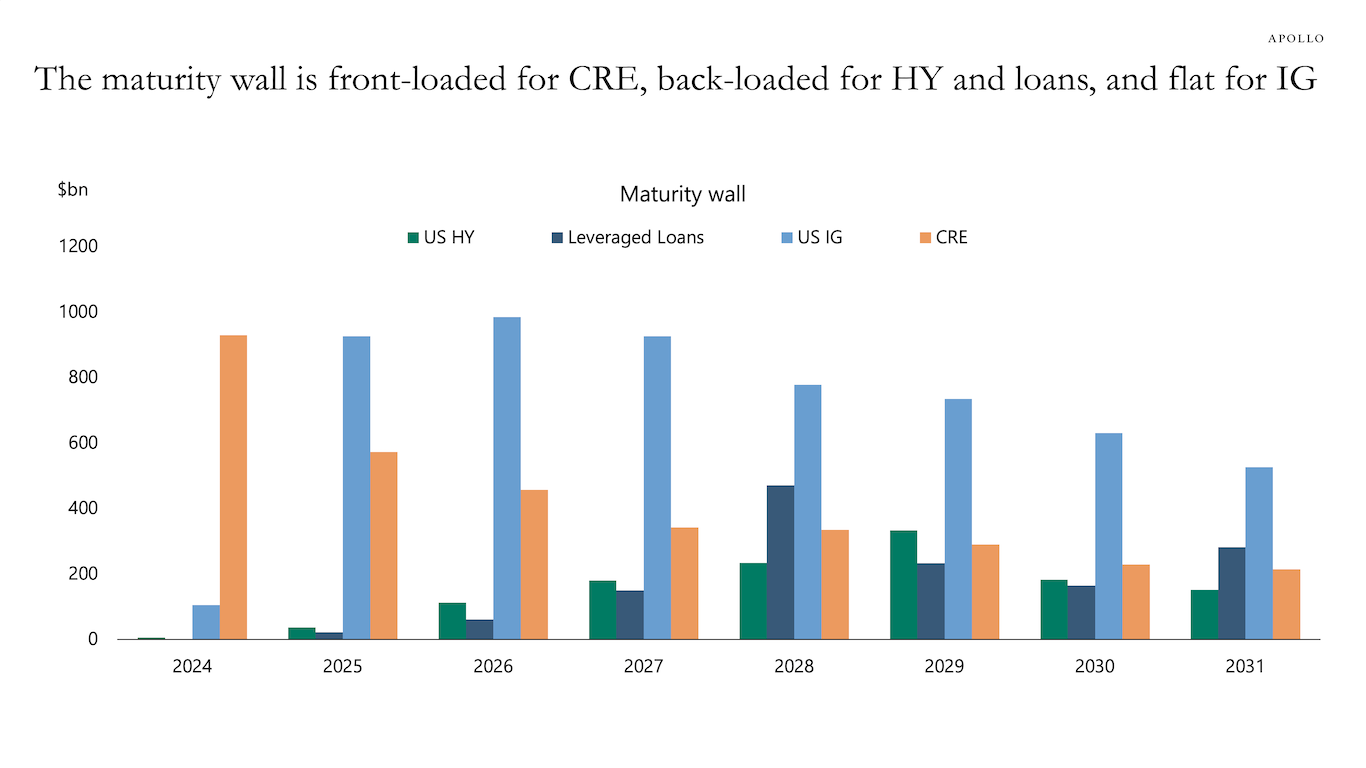Still long and very variable I believe/Vehicle sales/Rents/PMIs/Rising JGB yields
'Long and variable lags' when it comes to the impact of monetary policy on the economy is something we've heard all about for years with the only debate being how long and how variable. After 15 years of essentially zero interest rates preceding the 2022 rise in them, I still believe the impact will be very long and very variable as long as interest rates still stay higher for longer, which I believe they will. Below is a chart from my friend Torsten Slok back in October that he put out in his daily writings quantifying the maturity wall in coming years in high yield, leveraged loans, investment grade and commercial real estate. As seen, the biggest jump over the coming years is from investment grade companies.
Now we don't have to worry about the credit quality of these IG names but I do want to point out that the interest rate this debt will refi into will be a few hundred basis points above the rate on the maturing loan which was most likely priced pre 2022. Keep in mind that one of the key factors in the notable rise in corporate profit margins over the past 20 years has been artificially low interest expense. That along with the lower corporate tax rate and low labor costs.
With respect to the US government's maturity wall this year, my friend Stephanie Pomboy in a recent note mentioned the $10 trillion of maturing US debt this year with about $6 trillion being bills and $4 trillion being longer term notes. Those notes will likely refi also about 200 bps above the maturing rate. On $4 trillion, that's an added $80 billion of interest expense and doesn't include the about $2 trillion extra of debt the US government needs to sell just to finance the budget deficit. By the way, the US Treasury is issuing $119b of new debt just this week.
As for private equity and what higher for longer rates mean for them, this was an interesting tidbit I read over the weekend in the FT 'Long View' column from John Plender. He cites this from McKinsey, "that roughly two-thirds of the total return for buyout deals entered in 2010 or later and exited in 2021 or before can be attributed to broader moves in market valuation multiples and leverage, rather than improved operating efficiency." In other words, much of private equity's success during that time period was due to easy money and a low cost of funding deals.
On the likelihood that Justin Trudeau resigns, the Canadian$ is rallying almost 1% and should rally further from here after really getting beaten up last year. It's like a stock rallying after an unliked CEO leaves.
Keep reading with a 7-day free trial
Subscribe to The Boock Report to keep reading this post and get 7 days of free access to the full post archives.




